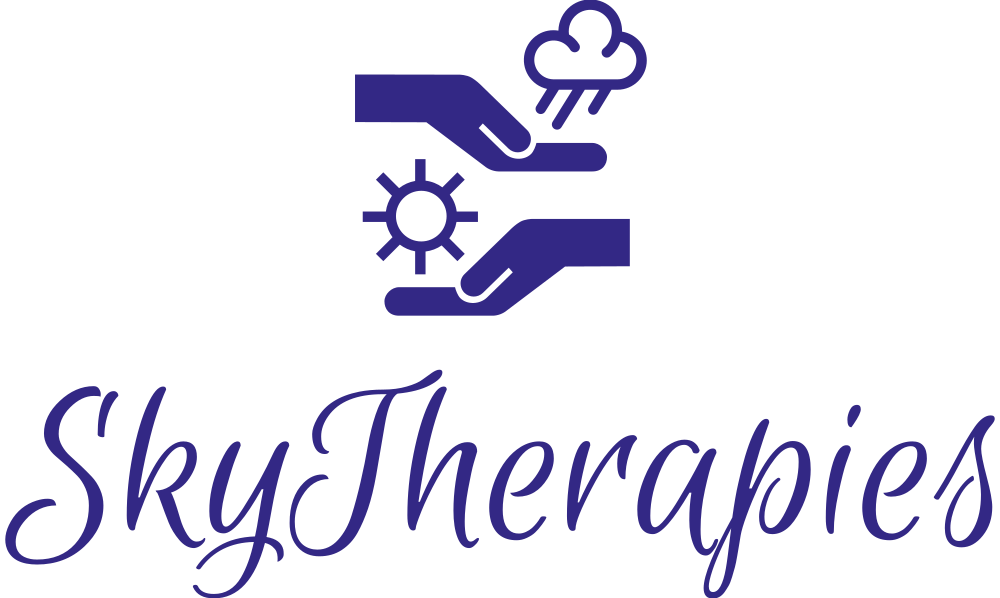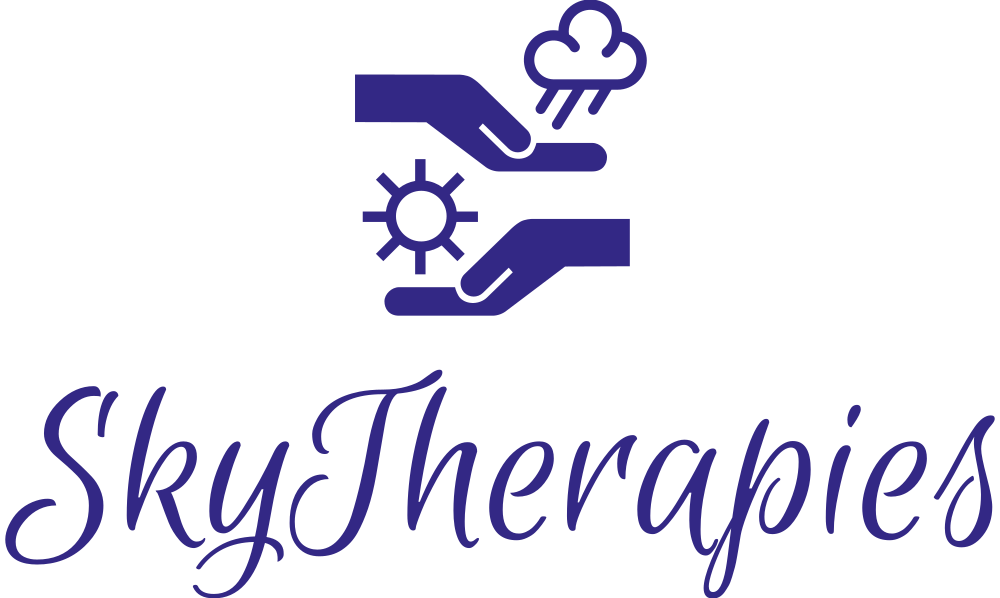Depression is a complex and often misunderstood condition that affects millions of people worldwide. It can feel like an emotional fog that distorts your perception of life, making even simple tasks feel overwhelming. The weight of depression can be crippling, leaving individuals feeling isolated, hopeless, and disconnected from the world around them. But it’s important to understand that depression is not a sign of weakness—it is a medical condition that can be managed with the right support and therapeutic interventions.
At Sky Therapies, we recognize the unique challenges of living with depression, and we are dedicated to helping individuals understand its roots, navigate its impact, and ultimately find healing through effective therapies like EMDR (Eye Movement Desensitization and Reprocessing) and DBR (Deep Brain Reorienting). In this blog post, we’ll explore the causes of depression, its emotional and physical toll, and how therapy can provide the tools necessary for recovery.
What is Depression?
Depression is more than just feeling sad or having a “bad day.” It’s a persistent, ongoing feeling of sadness, emptiness, or hopelessness that can last for weeks, months, or even years. It’s important to note that depression affects not only mood but also cognitive function, physical health, and behavior.
Some of the most common symptoms of depression include:
- Persistent sadness or emptiness
- Loss of interest in activities once enjoyed
- Fatigue or lack of energy
- Difficulty concentrating or making decisions
- Sleep disturbances (either insomnia or oversleeping)
- Changes in appetite or weight
- Feelings of guilt, worthlessness, or hopelessness
- Physical symptoms like headaches, stomach issues, or unexplained aches and pains
These symptoms can interfere with daily life, affecting work, relationships, and overall quality of life. For some, depression can lead to self-destructive thoughts or behaviors, making it a serious and potentially life-threatening condition if left untreated.
Causes of Depression
Depression is a multifaceted condition, and there is no single cause. Instead, it arises from a combination of genetic, biological, environmental, and psychological factors. Here are some of the primary causes of depression:
- Biological Factors: Genetics play a significant role in depression. If a person has a family history of depression, they may be more likely to experience it themselves. Neurotransmitters in the brain, such as serotonin and dopamine, are also involved in mood regulation. Imbalances in these chemicals can contribute to feelings of sadness and hopelessness.
- Life Events and Stress: Major life changes—such as the loss of a loved one, a divorce, financial stress, or job loss—can trigger depression. Chronic stress, including ongoing work or relationship stress, can also lead to depression. Sometimes, depression occurs after a significant event, but other times it can emerge gradually without any obvious trigger.
- Childhood Trauma or Abuse: Individuals who have experienced abuse or neglect during childhood may be more susceptible to developing depression later in life. Trauma can affect the way the brain processes emotions, making it more difficult to regulate mood and respond to stress.
- Chronic Illness or Pain: Living with chronic illness or pain—such as fibromyalgia, chronic fatigue syndrome, or autoimmune conditions—can lead to depression. The constant physical struggle can take an emotional toll, leading to feelings of hopelessness and despair.
- Unresolved Emotional Pain: Negative emotions, such as shame, guilt, or grief, that are not properly processed can build up over time and contribute to depression. When emotional wounds are not addressed, they can manifest as depression.
How Depression Impacts Your Life
Depression affects not only your mood but also your physical health, relationships, and overall well-being. When depression takes hold, it can feel like a heavy burden that you can’t escape from.
- Mental Health: Depression can impair your ability to think clearly, concentrate, and make decisions. It can also lead to feelings of inadequacy, worthlessness, and self-doubt, further deepening the emotional pain.
- Physical Health: Depression can lead to chronic fatigue, sleep disturbances, changes in appetite, and physical pain. Some individuals experience headaches, digestive issues, or muscle tension as a result of depression.
- Relationships: Depression can cause individuals to withdraw from social activities and isolate themselves from friends and family. It may also lead to misunderstandings or conflict in relationships, as others may not fully understand the severity of the condition.
- Work and Daily Life: Depression can impair performance at work or school, making it difficult to focus and complete tasks. The lack of motivation and energy can also make it hard to engage in daily activities like self-care, cleaning, or socializing.
How Therapy Can Help with Depression
While depression is a serious condition, it is treatable. Therapy is an essential tool in managing and overcoming depression, providing individuals with the skills, insights, and support they need to heal. At Sky Therapies, we offer a range of evidence-based therapeutic approaches that can help individuals overcome depression and restore emotional balance.
EMDR for Depression
EMDR (Eye Movement Desensitization and Reprocessing) is an evidence-based therapy that is widely recognized for its effectiveness in treating trauma and depression. It works by helping individuals reprocess painful or distressing memories, reducing their emotional charge and allowing for healthier emotional responses.
For individuals whose depression stems from past trauma or unresolved emotional pain, EMDR can be a powerful tool. By using bilateral stimulation (such as guided eye movements), EMDR facilitates the reprocessing of traumatic memories, allowing individuals to release the negative emotions tied to these experiences. This helps reduce the symptoms of depression that arise from past wounds.
EMDR also helps individuals shift negative thought patterns and beliefs that contribute to depression. By reprogramming the way the brain processes emotional memories, EMDR enables individuals to develop healthier, more positive perspectives.
Deep Brain Reorienting (DBR) for Depression
Deep Brain Reorienting (DBR) is a powerful, advanced therapeutic technique designed to help individuals address the root causes of depression. DBR targets the brain’s stress response system, helping to reorient neural pathways and break free from the cycle of depression. It facilitates the release of deep-seated emotional blocks, allowing for emotional healing and a renewed sense of balance.
Through DBR, individuals can reprocess the emotions that contribute to depressive symptoms and release them from the body. This approach can be particularly helpful for those with chronic depression or those who have experienced emotional trauma in the past. By addressing both the brain and body’s responses to stress and emotional pain, DBR offers a holistic way to heal from depression.
Complementary Therapies at Sky Therapies
At Sky Therapies, we understand that depression is unique to each individual, and we offer a variety of complementary therapies to support the healing process. Along with EMDR and DBR, we utilize Brainspotting, Mind-Body Therapies, and Pain Reprocessing Therapy to create personalized treatment plans.
- Brainspotting helps individuals access the deeper parts of the brain where trauma and emotional pain are stored. By processing these unresolved emotions, clients can release the grip of depression.
- Mind-Body Therapies encourage self-awareness, relaxation, and emotional expression. Techniques like mindfulness and somatic experiencing help individuals reconnect with their bodies and release the tension tied to depression.
- Pain Reprocessing Therapy can also be helpful for individuals whose depression is exacerbated by chronic pain, as it addresses both the emotional and physical components of the condition.
Moving Forward: Finding Hope and Healing from Depression
Depression is a challenging and isolating condition, but it’s important to remember that healing is possible. With the right therapy, individuals can learn to manage their depression, heal from past trauma, and develop healthier emotional responses. EMDR, DBR, and other therapeutic techniques offered at Sky Therapies can help you process painful emotions, release negative patterns, and find relief from the symptoms of depression.
If you’re ready to take the first step toward healing and recovery, we invite you to reach out to us at Sky Therapies. Our compassionate team is here to guide you through your journey, offering support, understanding, and the tools you need to overcome depression and embrace a brighter future.





